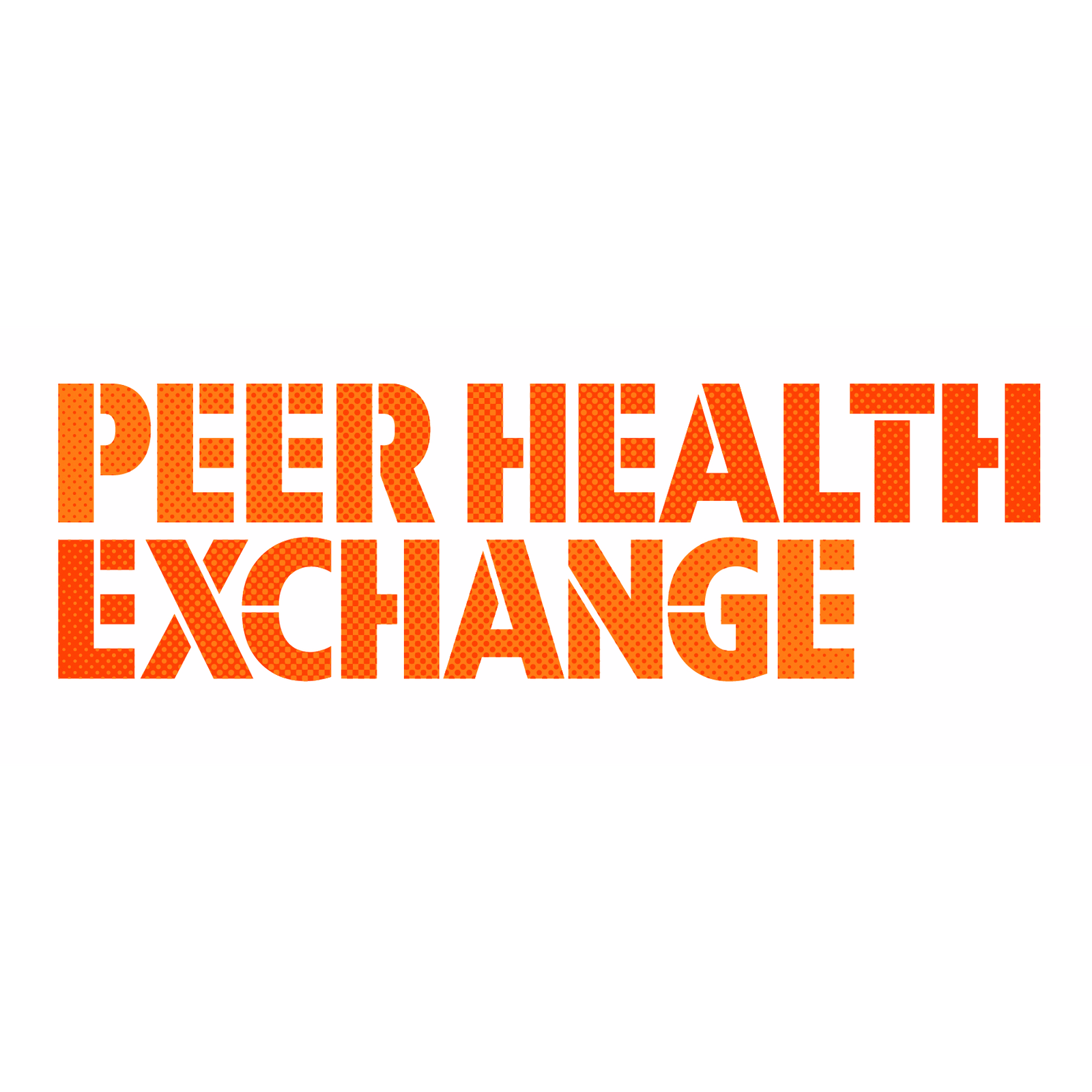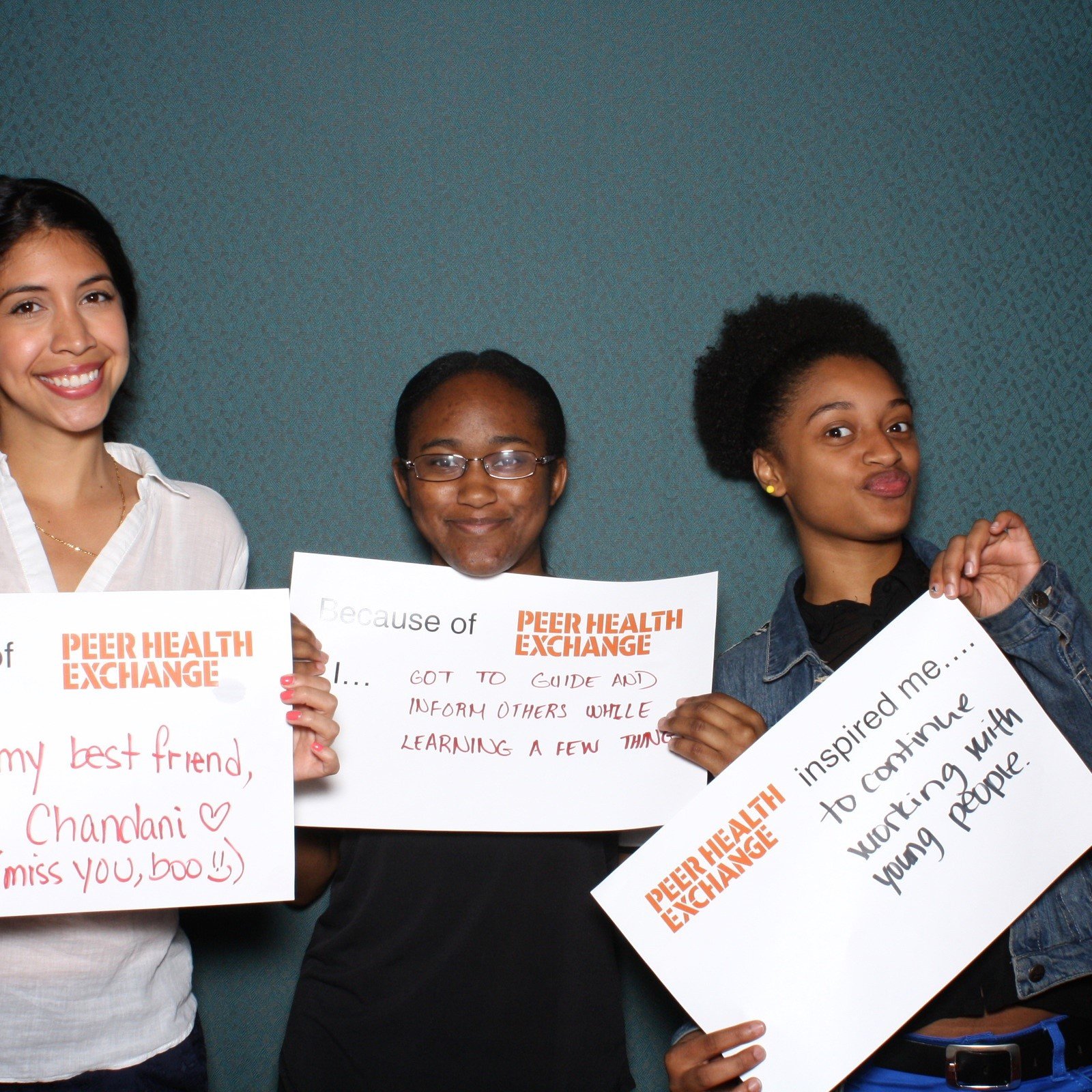

http://www.peerhealthexchange.org/


Peer Health Exchange’s mission is to empower young people with the knowledge, skills, and resources to make healthy decisions. We do this by training college students to teach a skills-based health curriculum in under-resourced high schools across the country. Peer Health Exchange, with our partners, will advance health equity and improve health outcomes for young people
PHE partners with public high schools that lack health education and where the majority of the students live at or below the poverty line. These students experience a disproportionate number of serious health risks ranging from teenage pregnancy to obesity. PHE trains college students to teach a comprehensive health curriculum in these schools.PHE recruits, selects and rigorously trains college students to teach 9th graders a year-long health curriculum with skills-building and decision-making focus. The curriculum consists of thirteen standardized health workshops: Decision-making and Communication I and II; Abusive Relationships; Healthy Relationships; Rape and Sexual Assault; Pregnancy Prevention; Sexual Decision Making and Communication; Sexually Transmitted Infections; Alcohol; Drugs; Mental Health; Tobacco; and Nutrition and Physical Activity. For the 2017-2018 academic year, PHE is partnering with 4 colleges (University of California at Berkeley, California State University East Bay, Stanford University and San Francisco State University) with 900 volunteers having been trained to empower over 11,000 high school students.Today, PHE Bay Area partners with 15 high schools in Hayward, San Leandro, Oakland, Emeryville, and San Francisco.PHE gives teenagers the knowledge and skills they need to make healthy decisions. In the classroom, PHE high school students articulate their values and goals, learn basic, accurate health information, explore attitudes and perceptions of peer norms and peer pressure, analyze the influence of culture and the media on health, discuss barriers to healthy behaviors and strategies to overcome them, and identify and learn how to use the health resources in their communities. PHE volunteers teach the PHE curriculum, in pairs, once a week during a non-academic time in the school day. The workshops deliver accurate health information and skills, and empower teens to make healthy decisions. PHE volunteers teach teens at an age when they are particularly receptive to and in need of health education. Ninth grade represents a transition from middle school to high school during which many teens encounter risky situations for the first time. These 14- and 15- year old students are old enough for mature discussion about sensitive topics, yet also young enough to learn knowledge and skills that will help shape their behavior. In addition, several studies demonstrate that teenagers better absorb health information when it is delivered by educators of a similar age as opposed to adult educators. PHE fosters a commitment to public service in college students.For many PHE volunteers, their experience in the classroom begins or furthers their commitment to public service. PHE prepares them to be leaders committed to serving the needs of their communities. Many of these volunteers will go on to be teachers, doctors, public interest lawyers, and policymakers who will continue to serve their communities throughout their lives.
70 Gold Street San Francisco CA 94133

http://www.peerhealthexchange.org/


Peer Health Exchange’s mission is to empower young people with the knowledge, skills, and resources to make healthy decisions. We do this by training college students to teach a skills-based health curriculum in under-resourced high schools across the country. Peer Health Exchange, with our partners, will advance health equity and improve health outcomes for young people
PHE partners with public high schools that lack health education and where the majority of the students live at or below the poverty line. These students experience a disproportionate number of serious health risks ranging from teenage pregnancy to obesity. PHE trains college students to teach a comprehensive health curriculum in these schools.PHE recruits, selects and rigorously trains college students to teach 9th graders a year-long health curriculum with skills-building and decision-making focus. The curriculum consists of thirteen standardized health workshops: Decision-making and Communication I and II; Abusive Relationships; Healthy Relationships; Rape and Sexual Assault; Pregnancy Prevention; Sexual Decision Making and Communication; Sexually Transmitted Infections; Alcohol; Drugs; Mental Health; Tobacco; and Nutrition and Physical Activity. For the 2017-2018 academic year, PHE is partnering with 4 colleges (University of California at Berkeley, California State University East Bay, Stanford University and San Francisco State University) with 900 volunteers having been trained to empower over 11,000 high school students.Today, PHE Bay Area partners with 15 high schools in Hayward, San Leandro, Oakland, Emeryville, and San Francisco.PHE gives teenagers the knowledge and skills they need to make healthy decisions. In the classroom, PHE high school students articulate their values and goals, learn basic, accurate health information, explore attitudes and perceptions of peer norms and peer pressure, analyze the influence of culture and the media on health, discuss barriers to healthy behaviors and strategies to overcome them, and identify and learn how to use the health resources in their communities. PHE volunteers teach the PHE curriculum, in pairs, once a week during a non-academic time in the school day. The workshops deliver accurate health information and skills, and empower teens to make healthy decisions. PHE volunteers teach teens at an age when they are particularly receptive to and in need of health education. Ninth grade represents a transition from middle school to high school during which many teens encounter risky situations for the first time. These 14- and 15- year old students are old enough for mature discussion about sensitive topics, yet also young enough to learn knowledge and skills that will help shape their behavior. In addition, several studies demonstrate that teenagers better absorb health information when it is delivered by educators of a similar age as opposed to adult educators. PHE fosters a commitment to public service in college students.For many PHE volunteers, their experience in the classroom begins or furthers their commitment to public service. PHE prepares them to be leaders committed to serving the needs of their communities. Many of these volunteers will go on to be teachers, doctors, public interest lawyers, and policymakers who will continue to serve their communities throughout their lives.
70 Gold Street San Francisco CA 94133
